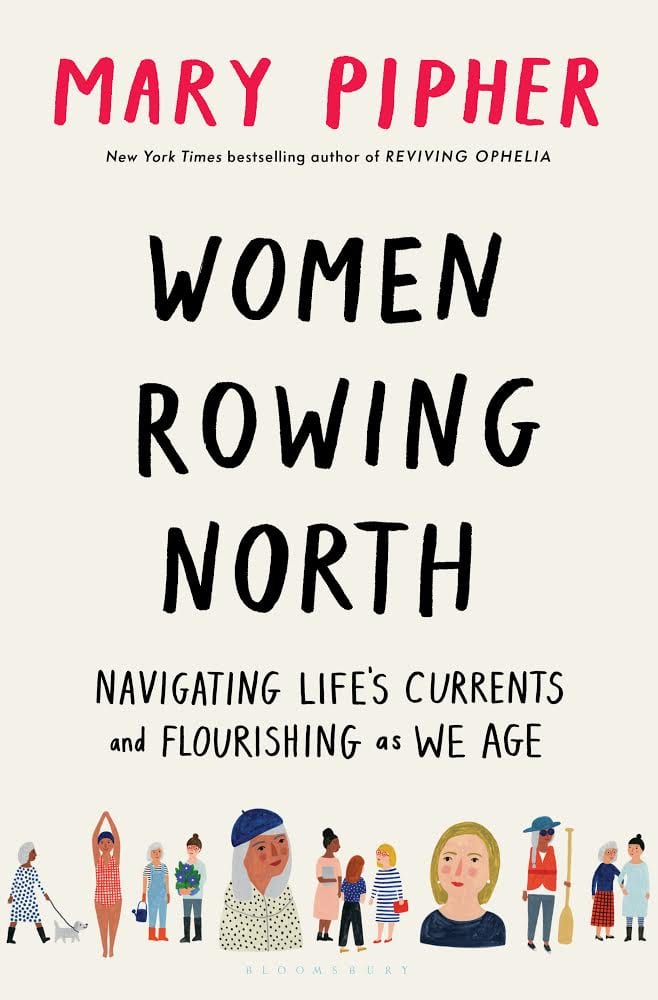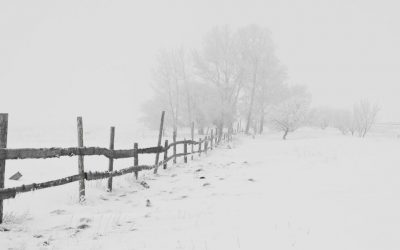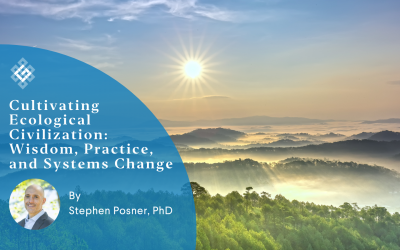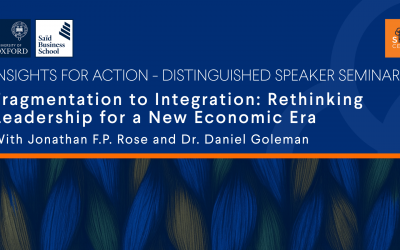Mary Pipher is the bestselling author of Reviving Ophelia and other books and her latest, Women Rowing North, is a contemplative guide, womanifesto, and reframing of our idea of aging. She is a therapist and writer based in Nebraska, straddling several political, professional, spiritual, and generational circles in her community.
We talked about what it means to age, the importance of intergenerational friendships, reverence for elderhood, healing the political divide, and more. Raised Methodist, with much of her adulthood spent as a Unitarian, and now a practicing Buddhist with a local sangha in Lincoln, Nebraska, we also explored the role of mindfulness and Buddhism in her own healing. Holding the both/and of life in her seventies, Pipher shares a renewed appreciation for the beauty inherent in this stage of life.
Jenara Nerenberg: I wanted to first ask what prompted the book at this point in time—how did it all come together? Why did you decide that now was the time for this book?
Mary Pipher: Well, all of the books I write, I write because I’m struggling to understand something that is complicated—to me at least. So, for example, when I wrote Reviving Ophelia, my first published book, I was a therapist working with teenage girls, and I had a teenage daughter. At that time, the cultural story about teenage girls was that if they were in trouble, it was because they came from dysfunctional families.
If I looked at my daughter and her friends, and the therapy clients I was seeing, I realized that wasn’t the case at all, that, in fact, the girls I was really seeing having a hard time were girls who hit junior high and had a really rough set of streets to deal with. There was kind of a disconnect between the cultural story about teenage girls and what I was actually experiencing and observing as a mom and a therapist, so that disconnect is what interested me.
It’s the same thing with this book. What really interests me is we have a set of cultural scripts about how older women are primarily about defined by loss; by the loss of their appearance, by the loss of their sexuality, etc. This contrasts with my own experience of being an older woman—we’re actually the happiest people around. We often tell each other that we’re enjoying our lives more than we ever have before, and that, even when we’re in a really rough spot, like we’re losing a sibling or a friend, we have seven decades of experience learning how to cope with rough spots, and we end up being surprisingly resilient, in spite of whatever is happening.
That’s why I wanted to write this book. I wanted to say, “Look, this entire culture is having the wrong conversation about older women, and I have some ideas that point us toward a better conversation.” I want to share those ideas. It’s not like all of my ideas are right. It’s just that they’re provocative, I hope. They fit my own experience, and it appears they’re fitting other women’s experiences, and I hope it will change the nature of the conversation about older woman.
Jenara Nerenberg: What is that essential shift that needs to happen? How are you reframing the conversation, and how should the public shift toward having a better narrative?
Mary Pipher: Well, primarily, we’ve been defined by our diminishment, and we’ve been looked at as sort of a diminished version of our former selves. The way I define older women is by our potential for growth and flourishing. I make the argument that happiness is a skill and a choice, and that attitude may not be everything, but it’s almost everything, and, in many cases, it’s all we have. There are so many situations, especially at 70—I’m 71 now, but at 70 we’ll say—where we don’t have control, but we have choices.
In this book I really focus on intentionality, and attitude, and potential for growth, because I think if we see this life stage correctly, it’s an enormous portal for growth, and we can end up having the deepest and most profound growth of our lifetimes. But if we don’t believe in our potential to grow, we’re unlikely to grow. Because of that I really wanted to focus on the potential to grow. I think it comes from the fact that almost every day we oscillate between great joy and some kind of despair and sorrow.
For example, just right this minute, I’m looking out my window, and about 15 mourning doves have just landed on my bird feeder and are just pecking away, and they look so beautiful in the snow, eating some birdseed. And yet, at the same time I say that, I can say that this month I officiated at my first funeral for a close friend. That is very much the way lives of older women go, and it’s that very both/and nature of this life stage that makes it so catalytic for growth.
We really can use whatever happens to us to learn and to deal with life in a more grateful way, in a more skillful way, and in a more positive way.
Jenara Nerenberg: You mentioned you’re a Buddhist, and Garrison Institute has a strong focus on mindfulness and how mindfulness intersects with all aspects of life, whether it’s aging or end of life or social activism. For you, do you have a particular practice around mindfulness, or do you feel that it’s just so integrated into who you are and how you interact with the world, the environment, and people around you? Could you say a little bit about the role of mindfulness in your own life?
Mary Pipher: Well I was raised a Methodist, and there’s still a Methodist in me. The main thing I learned from the Methodists is that morality is action, that it isn’t empty words or nice thoughts; it’s actually doing something to help the world, and I’m glad I’ve retained that. Most of my adult life I was a Unitarian, but I came to Buddhism—and I actually wrote a book about this called Seeking Peace: Chronicles of the Worst Buddhist in the World—because I came to Buddhism after I had had sort of a breakdown. I’d been on the road too long. I’d been under pressure too long.
I think this was about 2000—well, I know when it was. It was 2001. I had been out on the road after 9/11. I’d written a book on the beauty of refugees and immigrants in our country. I sent it to my editor the Saturday before 9/11. I sent it on 9/9. When that book came out, it was as if I had written a book on the glories of the dirigible just before the Hindenburg exploded.
It was the worst timing ever. I was out on the road and I ended up just working too hard, spending too many days away from home. There was a year where I spent more nights in hotel rooms than my own home. I reached a point where I knew I had to stop. I was on the road. I finished the gig, but I told my husband on the way home, “I’m done. I want to cancel stuff out. I want to stay home for the winter.”
That winter, I read a lot of history and I started meditating. I didn’t do it really as a Buddhist. I did it to calm down my mind. I did it as an emergency way to deal with my busy, overactive, hyped-up brain, but the experience I had was beautiful. When I read psychology, I felt worse about myself. I felt damaged. I felt different from other people. I wondered if I was disturbed. When I read Buddhism, I felt like I’m part of the human race; we all suffer. All of this experience is present to teach us things, and all I have to do with all of the pain I’m in right now is just simply sit with it, and it was enormously calming.
After that, I started going to retreats. I know Jack Kornfield, and I’ve been out to Spirit Rock multiple times. I know Joanna Macy and have done some work with her. I am also a member of a Buddhist sangha that meets in Lincoln every Sunday. I have a regular meditation practice with my sangha, and I have a daily meditation practice. I’m a great believer in mindfulness. Mindfulness and writing are both ways of looking at life with some distance, on a little ledge above what Michael Pollan calls “default mode rumination.”
So, it’s just really wonderful to have Buddhism as part of my life and mindfulness as part of my life. I’m very grateful for it.
Jenara Nerenberg: It’s great to learn more about your history. One of the themes I picked up on in the book is the theme of community and the importance of community for sustaining love, connections, and the growth that you were just talking about, and particularly a ideals of intergenerational connection and community. Can you talk more about the role of community in your life?
Mary Pipher: First I just want to say something about intergenerational relationships. If you’re an ageist person, if you don’t pay attention to older women, if you have negative attitudes about older people, you’re essentially involved in some kind of self-hatred of your future self. If you’re lucky, you will get old, and you will be somebody who has wrinkles and gray hair and struggles with some health issue at some point in your life.
It’s not only important for older people that we have a less ageist, more integrated society; it’s very important for younger people to realize that, as they go through life, they actually may get happier and have more life skills. They may find themselves having deeper, richer, profound experiences of life, as opposed to some kind of diminishment. It’s a very important cultural lesson I would like to share.
I wrote a book called Another Country that was about my generation helping our parents die, and I wrote it after my mother died. This was back in the late ’90s. I talked a lot in that book about intergenerational bonding and how each life stage has its own kind of loving, its own kind of energy, and that when we can combine all those life stages in the community, everyone benefits so much from the richness.
Now, that’s exactly the opposite of what tends to happen in America, where we put all our four-year-olds in one place, and our 80-year-olds in another, and our high school seniors in one place, and our 45-year-olds in another. It creates all kinds of pathology. Four-year-olds desperately need a grandma’s lap to sit on and somebody to read them a story and give them a hug, and 80-year-olds need to be around children, and they need to be around 20-year-olds and 45-year-olds.
There’s ways to make that happen. For example, one thing I mentioned in the old book was that there are several small towns in Nebraska that have intergenerational bands, and they invite all of the musicians who used to play in the high school band to come one day a week and practice with their high school students. So, it keeps the old musicians practicing a little bit, but, more important, it makes that connection between all different ages in the town and the high school students. It’s a great idea.
I was just in my local bookstore, and there’s a wonderful young woman, Casey, who works there. I’ve always liked her. I always like to talk to her. She’s real adventurous and a reader, and we have a lot in common. But the last time I saw her, she said, “Goodbye.” And I go, “Well, what are you doing?” She has an old friend in her 70s who has money and invited her to travel the world with her. This old friend said, “I have the money to afford it for both of us, but I really need a companion to help me with things. Casey, would you like to go around the world with me?”
And, of course, Casey jumps on it because she likes this older woman and she’s going to spend a year traveling around the world with her, seeing all kinds of sights. And I thought, well, what a brilliant idea. What a great idea to just connect old people and young people. This is happening some with housing, because housing is so unaffordable, especially in places like San Francisco or New York City, that older people are opening their houses to young families or younger people. The family will take some responsibility for the older person, but they’ll have a nice place to live that’s safe, in a good neighborhood, and the older person will have someone who will help when they need.
So, there’s all these beautiful ways we can bring these generations together and grow. I’m really lucky. I’ve lived in the same town since 1972, so I’m still friends with the people I had babies with, the women I had babies with in the ’70s, and I know their children, and I’m starting to know their grandchildren now. I’ve always been a therapist in this town, so I know a lot of therapists.
Now, I’m in Nebraska, which is a very conservative state, and I’m in a relatively small group of activists that call ourselves the “royalty of lost causes,” because we almost never win any battles back here, but we’re close. We’ve really grown close over the years—whether it’s fighting against the death penalty, or fighting for environmental regulations, or human rights. So, that’s a good community. Finally, I’m in a wonderful community of writers. I feel extremely lucky to be embedded in all of these communities.
One thing I say in the book is it’s never too late to find a community, and it’s never too late to decide to be a happy person. There’s never a moment in your life when things are irreversible. We can wake up tomorrow morning with a new idea about how to be happy, and we can have aspirations to be a more connected, kind person than we ever considered possible for ourselves.
 Jenara Nerenberg: I love all of the themes that you explored in the book. When you think about your reader or the audience you had in mind as you were writing the book, what is your hope for them? Are there particular takeaways that you want to mention?
Jenara Nerenberg: I love all of the themes that you explored in the book. When you think about your reader or the audience you had in mind as you were writing the book, what is your hope for them? Are there particular takeaways that you want to mention?
Mary Pipher: Well, I’ve been very lucky because I’ve got a website with a portal, so I’m hearing from readers. I’m hearing things that almost make me cry. Somebody will write and say something like, “I have two broken hips, and I lost my husband a year ago, and I was really feeling dreary and pessimistic, and I read your book, and I realized there’s hope for me, that there’s things I can do.” That is exactly what my aspirations were for this book, that they would be useful to women my age who were struggling to understand their lives. There’s a lot of us.
My 70 does not look like my mother’s 70 or my grandmother’s 70. We’re in a very different world, and we’re in a world that has very few guideposts for how to live beyond 70 in an active, engaged, vibrant way. That’s why I wrote the book. I don’t have all the guideposts. I certainly don’t have a corner on any special wisdom, but I did have the sense that we were looking at things exactly the wrong way, and that there’s a much better way to look at the whole concept of aging.
My grandest aspiration for this book was that it would be to help men and women and younger people—and all people, really—rediscover what’s been a long belief of the human race, which is that old people have a great deal to offer, and that they’re in the time of life when they can feel great spiritual and emotional and relational fulfillment. And that, in many cases, it’s the most vibrant time of their lives.
Jenara Nerenberg: I definitely felt that in reading it, and I think you’re so right that the younger generations are looking for a better narrative, a better story about what it means to age. I think many of us are missing that kind of connection and actively searching for it. Sometimes it’s hard. It’s not a structured quest. It’s not integrated into daily life, like, “Oh, hey, I’m looking for someone to mentor me or chat.”
There is a longing there, and I think your book captures it beautifully, and I feel grateful.
Mary Pipher: The one thing we might end with, just because it’s really the primary lessons is the challenges women face, the survival skills we have, the resources we have, and then what I call the northern lights, which are the gifts. I really would like to mention the great gifts of this life stage, which are: authenticity and self-acceptance, expanded moral imagination, ability to take the long view of life and of time, and a sense for time that we can’t have when we’re younger. And finally, I believe we have an enhanced capacity for bliss.
Those are really the northern lights that I think are really important to talk about.
Jenara Nerenberg: Can you share any sort of reflections, or perhaps lessons you’ve learned from living within a highly divided United States right now? I think you have a unique situational viewpoint. Do you reflect on that often?
Mary Pipher: I do. One thing that happens to me a lot when I’m in progressive places, like San Francisco or Boulder or New York City or Boston is people will say, “Well, why are you in Nebraska?” And my answer is: “My state needs people like me. There’s plenty of progressives in Boston to carry the torch, but Nebraska really needs progressives.”
I think that’s really important, that progressives need to live in red, conservative places and work if we’re going to change this country. I’m not someone who only hangs out with progressives. I’ve got a son who’s an Evangelical, conservative Christian minister, and I know people all over this state who would not call themselves progressives, or even democrats.
But here’s what I think primarily about this country and where it’s at right now: We have managed to politicize everything, and it’s turned everybody. It’s turned people that are kind, good people into haters and demonizers and tossers of contempt at other human beings, and it breaks my heart. One of the primary lessons of Buddhism is we’re all part of the same living organism, and I believe that. I would never want in any way to treat any human being—and I’m including the president in this—with contempt, because I think that when we do that we diminish the beauty in our own living organism, which includes all of us.
Furthermore, I think that the contempt and the politicization of America is destroying not only our country but our people. I think it’s time for someone to have a very new, fresh approach to how we look at this country. It’s not like there aren’t people doing that. For example, I love Charles Eisenstein, and I love Joanna Macy, and there’s many people who are writing about this issue.
I feel very strongly that the way we’re going to move out of the situation we’re in is to depoliticize most aspects of life. For example, having clean air and clean water is not a political question; it’s a human question. That’s the same with most questions that are being politicized right now. Really, almost all of life is not political. It’s lived experience with the people around us, with the land around us, with the animals around us, with the books and ideas we surround ourselves with.
And, increasingly, politics has become so toxic that healthy people are pulling away from it because they realize, “I can’t have this in my life.” I’m a very strong activist, but I’m not part of an activist community that demonizes anyone. I feel that’s the way I want to work.
Jenara Nerenberg: When I’m in the Midwest, there is sort of a tender way of connecting and being with one another that moves at a slower pace. It helps enable people to exist as fellow human beings. It seems like something like that has also gotten lost.
Mary Pipher: You’re absolutely right. That was really a good thing about living in Nebraska. It’s a little quieter, a little slower, and a little less rushed or frenetic. It’s still that way. Nebraska compared to where you are is so different because the average young person here can get a good job and buy a house, and just have their children in a good school. I know young people out in the Bay Area, and they struggle with the most basic survival issues. The money situation is terrible out there.
So, there’s things like that that are still wonderful about the Midwest. It’s very, very conservative, but I was part of a group that led a coalition to stop the Keystone XL pipeline across Nebraska. My primary activist groups are progressive, urban liberals that live in Lincoln and Omaha. Our strongest allies were farmers and ranchers, because they know they can’t make a living if the water isn’t clean. We ended up being just stunned when all of these conservative ranchers wanted to have meetings with us.
I wrote a book about activism in Nebraska called The Green Boat and our fight to save our state from the Keystone XL pipeline. We stopped it in this state, and we stopped it by not politicizing it. It wasn’t about being a republican or democrat. One of our leaders said, “It’s not about blue water or red water. It’s about clean water.” And that’s the way we played that, and it really worked out well.
So I’ve seen a lot of evidence that there’s a different way to go than the way we’re going right now—and I say “we” meaning primarily the political powers that govern so much of our lives. I think that times are bad enough now that emergencies call for emergent behavior. I actually think right now that times are bad enough that we’re ready for a great paradigm shift, and it’s just on the horizon. I’m pretty optimistic that’s going to happen in my lifetime.
Jenara Nerenberg is a journalist and producer in San Francisco. Her organization, The Neurodiversity Project, hosts a live bestselling author event series with Pico Iyer and angel Kyodo williams and others, as well as The #Reframe Conference. She was a foreign correspondent in Asia for six years and can now be found at the Greater Good Science Center at UC Berkeley. Email her here, subscribe to the newsletter, or find her on Twitter.
Photo by Benjamin Davies on Unsplash



